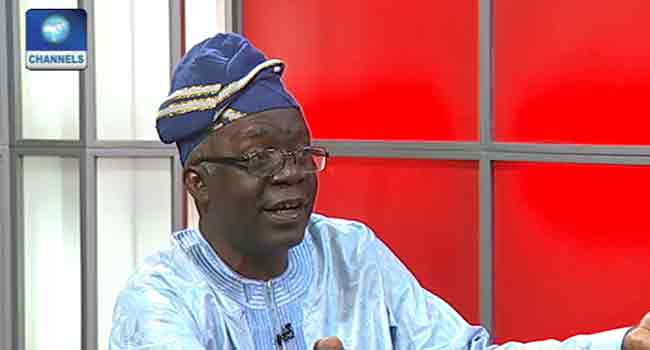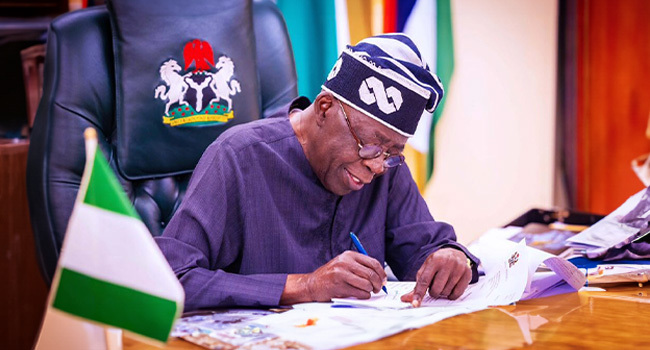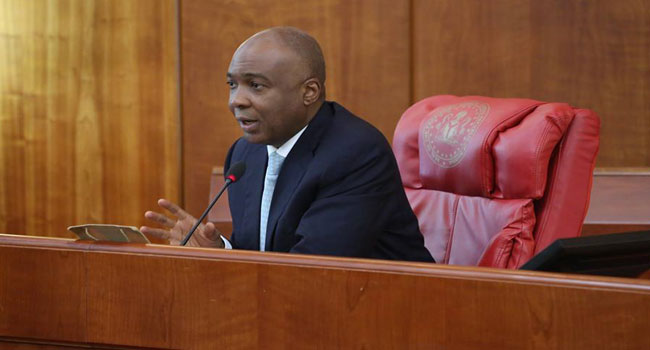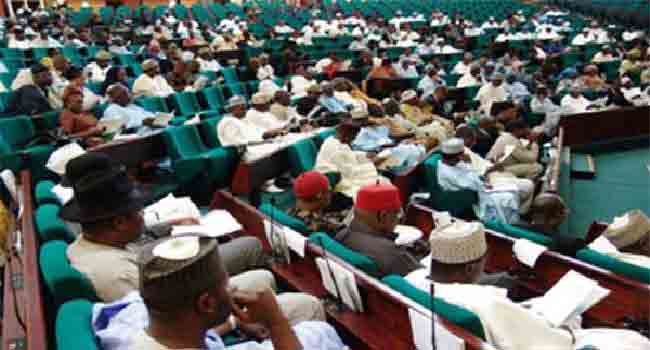
Human rights lawyer, Femi Falana has condemned the Code of Conduct Bureau (CCB) over its refusal to grant a Freedom of Information (FOI) request by Socio-Economic Rights and Accountability Project (SERAP) on the ground that asset declaration form is private information.
Falana described the ground as illogical.
He said this in a keynote address titled ‘Involvement of Nigerian People in the Fight Against Corruption’ and delivered at Stakeholders Dialogue on Corruption in Nigeria organised by Action Aid Nigeria, in Kano.
According to Falana, “the Federal Government has also failed to show commitment to the fight against corruption by encouraging secrecy with respect to asset declaration by public officers. A few days ago, the CCB turned down the request made by SERAP for the release of copies of the declaration forms of former state governors and Presidents on the grounds that the declaration forms are private documents.”
READ ALSO: British Government Warns Citizens From Visiting 21 States In Nigeria
Falana said it is illogical to claim that the asset declaration forms submitted by the erstwhile public officers are private documents. He added that accordingly, the rejection of the request by SERAP is a contravention of section 1 of the Freedom of Information Act, 2011 and article 9 of the African Charter on Human and Peoples Rights.
“It is hoped that the CCB will review its position and allow citizens to access the information in the declaration forms submitted to it by all public officers in view of the new policy of the Buhari administration to enforce effective asset declaration by public office holders,” he added.
“It is an undeniable fact that the progressive withdrawal of subsidies from social services by the State which is a key component of the IMF/World Bank sponsored Structural Adjustment Programme has led to mass poverty in the land.
“Through the privatisation of public enterprises and assets including banks and other financial institutions the economy was taken over completely by foreign and local interest groups. Thus, the privatization of public companies, commercialization of social services, have increased poverty and income inequality in society.
“From the reports compiled by the federal ministry of justice and federal ministry of finance as well as the anti-graft agencies the federal government has recovered not less than N1 trillion from treasury looters and through the whistleblowing policy of the Buhari administration.
“It is suggested that the sum of N1 billion be set aside for the establishment of a factory in each of the 774 local governments in the country while the balance should be allocated to the police to secure the country.
“Having managed the Petroleum Trust Fund under the Sani Abacha junta President Buhari should have no difficulty in investing the recovered loot in addressing the crises of insecurity and unemployment. After all, the sum of $321 million from the Abacha loot is being distributed to the poor as dictated by Switzerland that illegally warehoused the loot for almost two decades, Falana paper read in part.
“The role of the civil society in ensuring the effective fight against corruption and the implementation of the above recommendations cannot be over-stressed. In fact, both the UN Convention against Corruption and the African Union Convention on Preventing and Combating Corruption clearly articulate important roles for civil society in the fight against corruption.
“A good example of the role civil society can play is that currently being played by SERAP, a Nigerian based human rights, and anti-corruption NGO. But as corruption in Nigeria has assumed a dangerous dimension due to the anti-peoples economic programme of the government CSOs must link up with the people in combating the menace of corruption.
“We have shown that since the imposition of the Structural Adjustment Programme in the 1980s the country has continued to witness increasing poverty and underdevelopment in spite of the many laws that have been enacted against corruption. To reverse the dangerous trend the government should mobilize the people to create wealth and abolish poverty.
“Henceforth, the anti-graft agencies aided by CSOs should form an alliance with progressive political parties, trade unions, women and youth organizations with a view to fighting together for a society where the welfare and security of the majority of the people will be the primary purpose of government.
“To achieve the objective, popular forces should be prepared to challenge neo-liberal ideologues who are promoting poverty through the domination of the economy by market forces.”




